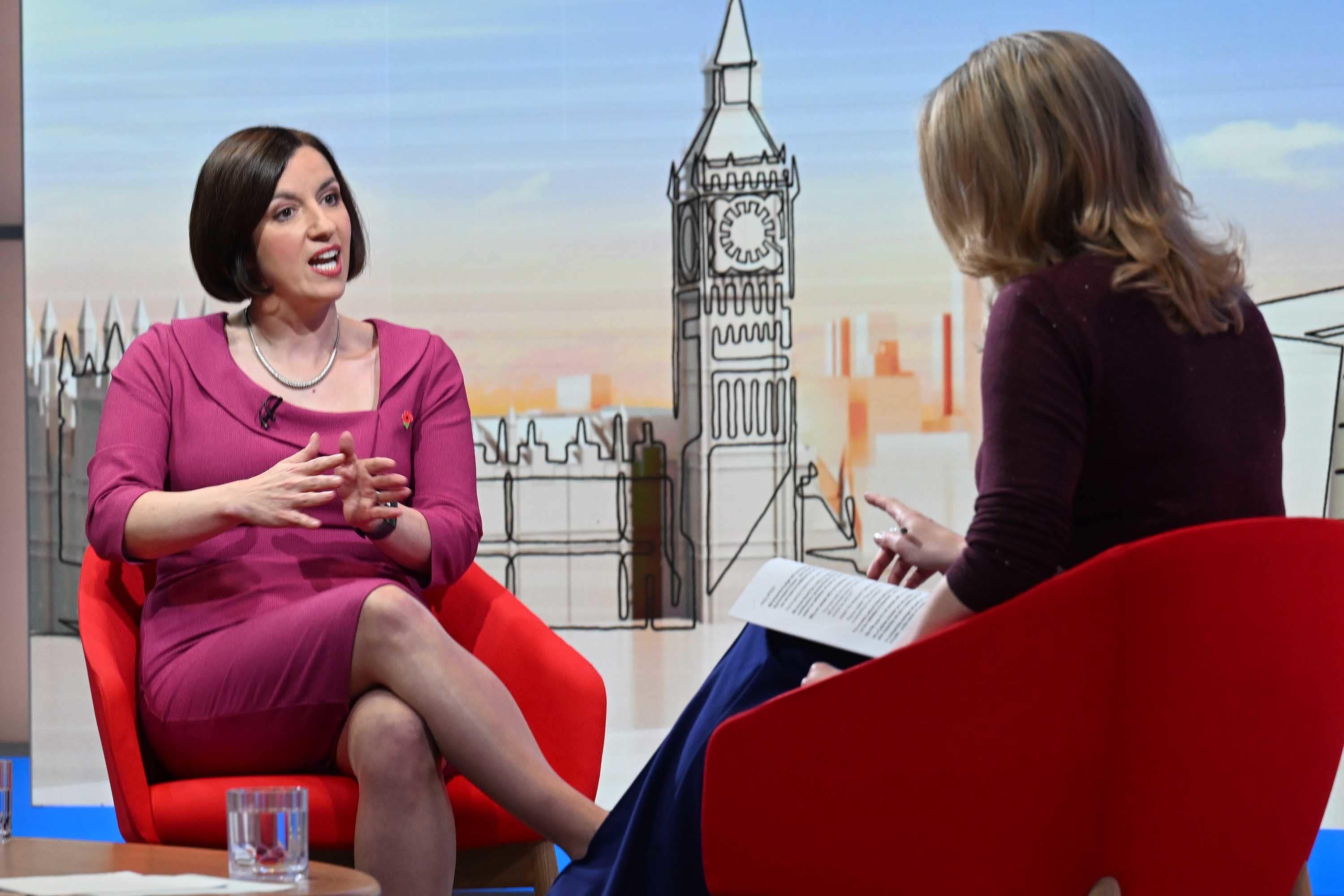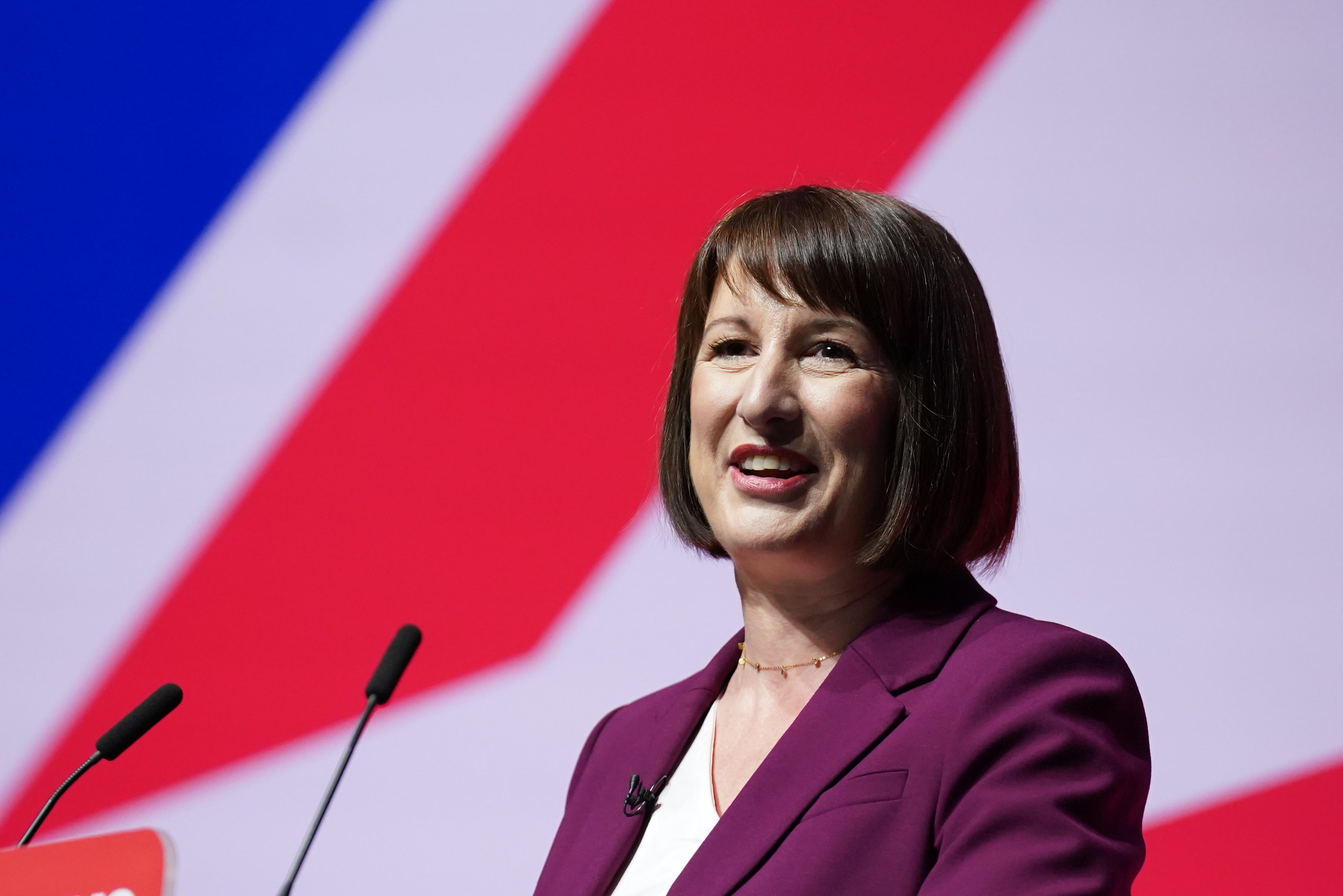No tax hike on payslips, vows minister amid confusion over definition of ‘working people’
But Bridget Phillipson warns Wednesday’s Budget will include tough choices

Working people will not see higher taxes on their payslip, a cabinet minister has pledged ahead of Rachel Reeves’ Budget.
But the Education Secretary Bridget Phillipson refused repeatedly to say whether a small business owner with an average net profit of around £13,000 counts as a “working person”.
Ms Reeves has claimed her Budget is for “strivers” as she tried to draw a line under a furious row over Labour’s definition of working people.
The party promised not to increase taxes on “working people”, including national insurance and income tax, in its manifesto.
But she is expected to expected to announce an increase to employers’ national insurance contributions, a move that could raise up to £20bn, in what has been denounced by the Tories as a “jobs tax”.

Ms Phillipson said as she acknowledged “frustrations” over the government’s refusal to spell out who will be hit by greater levies ahead of the Budget.
She also repeated warnings the measures would include “tough choices”, but she insisted it was a choice between investment or national decline.
Facing broadcasters on Sunday morning, the Cabinet minister was repeatedly pressed to define the Labour Government’s use of the term “working people”.
“You are inviting me to speculate about the nature of the question that you’re asking,” she told the BBC’s Sunday With Laura Kuenssberg show.
“What I’m saying is that when people look at their payslips, they will not see higher taxes.”
Speculation has mounted that people who make money from assets such as property could face greater levies in the Budget after Sir Keir Starmer said they do not fall within his definition of the term.
Labour had pledged in its manifesto not to hike taxes on what it described as “working people”, explicitly ruling out increases to VAT, national insurance, and income tax.
On Sunday, a Government source insisted it is still committed to keeping this promise over the whole of this Parliament after Ms Phillipson refused to “speculate” on whether the pledge would remain in place for the next five years during the morning media round.
“We can go through a range of different hypotheticals about who may or may not be captured by tax measures that may or may not happen in the Budget,” the Education Secretary said.
“When Rachel (Reeves) is sat here next weekend you can ask her about the measures that she’s announced.
“I know it’s frustrating ahead of the Budget that I can talk about some areas, but not all of it. I appreciate your frustration.
“I would love to come and say ‘here’s all the measures line by line’, that’s not my job however – that’s for the Chancellor.”
Asked whether she understands that viewers will be frustrated as well, Ms Phillipson said: “I can get that, and they haven’t got long to wait.”

The chancellor is also expected to cut the earnings threshold at which employers pay contributions.
She has announced £1.4 billion to rebuild crumbling schools, and that she will triple investment in free breakfast clubs, and spend £1.8 billion expading of government-funded childcare. A new way of measuring debt, will also give Ms Reeves more ‘headroom’ in the Budget.
In an interview with the Observer, she suggested she wanted to match the greatest moments in Labour’s economic history, while in an op-ed for the Sun On Sunday she said the statement would a “Budget for the strivers”.
She added: “In 1945, we rebuilt after the war; in 1964, we rebuilt with the ‘white heat of technology’; and in 1997, we rebuilt our public services. We need to do all of that now.”
Shadow science secretary Andrew Griffith said Labour “essentially lies to the British people” in terms of its plans, and he compared the party’s behaviour to the “worst form of dodgy car hire firm”.
He told Sunday With Laura Kuenssberg: “Already after 110 days, I think people are seeing that this Government came in on a false prospectus that things would be easy.
“They essentially lie to the British people in terms of their plans, not to increase national insurance… not to change the fiscal rules.”
Paul Johnson, the director of the Institute for Fiscal Studies, has warned some public services could continue to feel squeezed despite “one of the biggest tax-raising budgets ever”.
He told Sky: “Justice, local government, social care, police, prisons, they’re all really struggling at the moment.
“So again we’re in this really tough position where we could have the biggest tax-raising budget, or one of the biggest tax-raising budgets, ever and yet a lot of public services still feeling squeezed.”
Former Bank of England governor Mervyn King warned higher borrowing would also hit longer-term interest rates, which would “bear the brunt”.
He added: “Certainly if you borrow more, it doesn’t matter how you dress it up in terms of a different fiscal rule, people know that higher borrowing means higher borrowing, and financial markets and people who lend to the Government will demand a slightly higher interest rate to compensate for the higher amount of debt that they’re being asked to finance.”
Bookmark popover
Removed from bookmarks